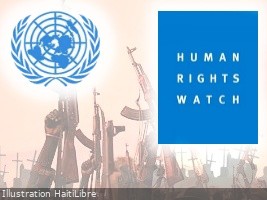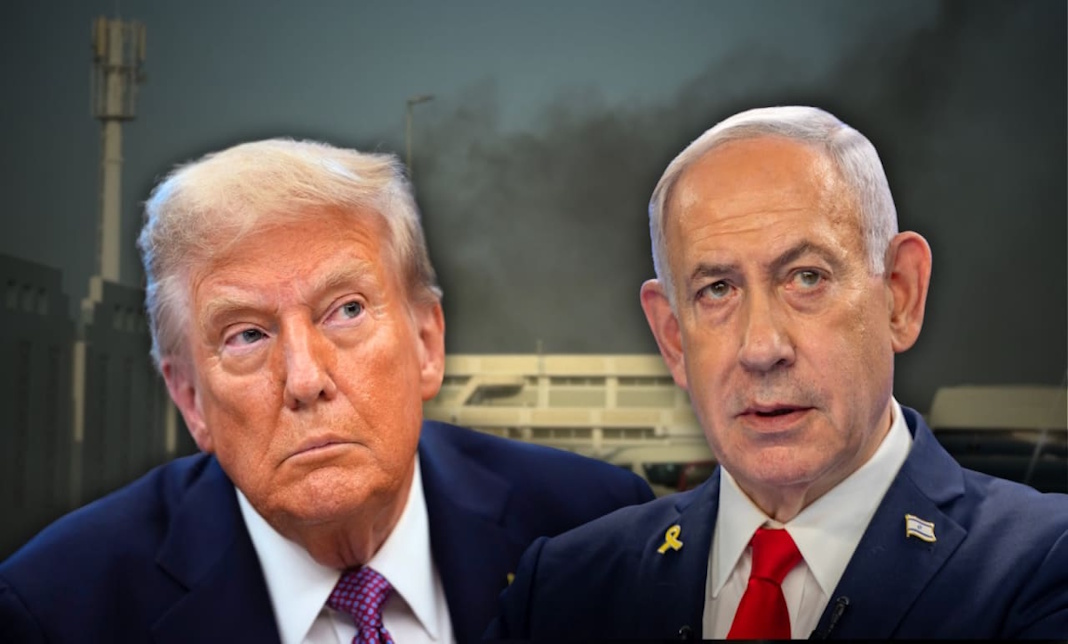Copyright haitilibre

iciHaiti - Carrefour-Shada : Inauguration of the new premises of the ONA annex iciHaiti - Politic : Decentralization of the judicial identity service iciHaiti - Environment : Massacre River in flood, flooding in Ouanaminthe iciHaiti - Climate Change : Launch of the National Health Adaptation Plan iciHaiti - Health : Cholera present in IDP camps more news Haiti - News : Zapping... Haiti - Health : Pharmacists on the front line Haiti - Environment : Workshop to present the results of COP29 and pre-COP30 Haiti - Security : «Move urgently to protect Haitians» dixit Human Rights Watch Haiti - News : Zapping... more news Haiti - Security : «Move urgently to protect Haitians» dixit Human Rights Watch27/09/2025 09:38:13 Friday, September 26, 2025 Nathalye Cotrino, senior researcher in the Americas division at Human Rights Watch, said in a statement, "The United Nations Security Council should rapidly authorize an international mission to confront escalating violence in Haiti, and ensure it has sufficient funding, personnel, and robust human rights safeguards." Criminal groups in Haiti have consolidated and expanded their territorial control beyond the capital, escalating violence in areas that were previously considered safe; the council is discussing whether to transform the Kenyan-led Multinational Security Support (MSS) mission into what it is referring to as "Gang Suppression Force" (GSF). "Time is running out to stop Haiti from falling entirely into the hands of abusive criminal groups," said Nathalye Cotrino "The UN has a chance to contribute meaningfully to addressing Haiti’s crisis by urgently ensuring that any force—whether the Multinational Security Support or the proposed Gang Suppression Force—is properly staffed, funded, accountable, and equipped with robust human rights safeguards." Violence in Haiti continues to escalate, with at least 3,137 people killed in the first half of 2025, according to the UN. Criminal groups control nearly all of Haiti’s capital, have expanded into three other departments, and have significantly disrupted the delivery of essential services and humanitarian aid nationwide. To date, almost one and a half million people have been displaced, and half the population faces acute food insecurity. Drawing on recommendations made by the UN secretary-general in February 2025 https://www.haitilibre.com/en/news-44332-haiti-politic-antonio-guterre-proposes-a-formula-for-a-security-force-capable-of-defeating-gangs-in-haiti.html , the United States and Panama have circulated a draft resolution to transition the MSS into a 'Gang Suppression Force' https://www.haitilibre.com/en/news-45656-haiti-flash-usa-proposes-a-more-aggressive-repression-force-against-gangs-with-more-than-5-000-men.html . The force would be composed of up to 5,500 police, military, and civilian personnel, authorized to operate independently or alongside the Haitian National Police; two significant changes compared to the roughly 1,000 mostly police personnel in the current MSS, which can only operate in support of the Haitian police. Under this proposal, a new UN Support Office in Haiti (UNSOH) would support the GSF. This office would also provide logistical and technical assistance to actors already operating in the country, including the UN Integrated Office in Haiti, the Haitian National Police, and the Haitian armed forces, and it would coordinate with the Organization of American States (OEA). However, "if the GSF proposal leaves serious gaps in funding, personnel, and human rights safeguards, it risks repeating the very failures that have undermined the current mission’s effectiveness," Human Rights Watch said. Any security support mission in Haiti should be backed by predictable and sustained funding. Predictable resources to cover salaries and operational costs are essential to prevent the gaps that crippled the MSS, and binding commitments for troop contributions are needed to ensure the force is fully staffed and able to curb abuses by Haiti’s powerful criminal groups. The new Office UNSOH should also be adequately resourced to provide all necessary equipment through the UN’s system of assessed contributions; that is, money that UN member countries are required to pay for UN operations. If created, the GSF should have rigorous vetting, consistent with UN standards, and human rights training for all personnel, both before deployment and during the mission. The mission should have a mandate to work with the specialized judicial units that national authorities have established to ensure adequate prosecutions for the most serious crimes, including massacres, sexual violence, and other grave human rights abuses. The mission and relevant UN agencies should also support the rapid operationalization of these units to ensure timely prosecutions. "It has been two years since Haitian authorities asked the international community for help to curb criminal violence, and so far, that help has fallen far short," Cotrino concluded. HL/ HaitiLibre



